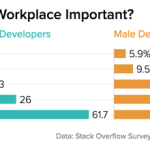
Shaping Leaders & Driving Results
Chapel Hill, NC, April 27,2016 —
Business leaders view inclusiveness and diversity as critical to attracting and retaining top talent and are very committed to creating inclusive cultures in their firms, according to a new study from the University of North Carolina Kenan-Flagler Business School.
UNC Kenan-Flagler partnered with Chief Learning Officer, Talent Management and Workforce magazines to conduct the 2016 Diversity Competencies for Leadership Development Survey.
Among the findings are:
– 75 percent identify creating an inclusive culture as an essential priority
– 86 percent say diversity is important for improving their bottom-line profits
– 95 percent believe that an inclusive culture is critical to their organizations’ future success
“The conversation is changing about diversity and inclusion,” said Kip Kelly, UNC Executive Development director of public programs. “Companies are recognizing that diversity is not optional – it is critical to the success and sustainability of every organization. Successful companies are working harder to foster a culture of inclusion, and they’re holding their leaders accountable.”
Top business objectives directly affected by an inclusive culture are identified as:
– Attracting top talent/employer of choice (73.2 percent)
– Improving organizational culture/behaviors (70.7 percent)
– Employee retention (68.3 percent)
– Innovation (59.8 percent)
– Improving collaboration (59.8 percent)
Asked about the roadblocks that impede a culture of inclusion, reasons cited included a lack of clarity about inclusion, not enough time set aside to create a culture of inclusion, and a lack of structured programs designed to foster a culture of inclusion.
“Demographics in the global workforce are changing rapidly and so are attitudes about diversity and inclusion,” said David Leonard, UNC Executive Development executive director. “Many companies are changing their approaches to diversity and inclusion, as you can see reflected in the research findings.”
The survey examines how organizations are redefining the competencies needed to manage a more diverse workforce and finds:
– 53 percent changed their diversity competencies in the past three years or developed them for the first time in the past three years; 12 percent plan to change them soon
Qualities considered most critical for a culturally sensitive leader include:
– Willingness to collaborate (71 percent)
– Flexibility (55 percent)
– Comfort with ambiguity and change (54 percent)
– Appreciation of difference (53 percent)
– Openness (51 percent)
These competencies are developed among the top levels of leadership (senior and mid-level leaders at about 80 percent) and line leaders and non-management employees (59 percent and 46 percent, respectively).
“We find it encouraging that diversity competencies have been embedded in leadership development throughout organizations, including non-management roles,” said Kelly. “It suggests that organizations are taking a more holistic approach to emphasize the importance of diversity across all career levels, which we view as a best practice for achieving and sustaining a culture of inclusion.”
The survey was conducted February 24-March 24, 2016; 779 responses were received. Read more here about the results.
About the University of North Carolina Kenan-Flagler Business School – Consistently ranked one of the world’s best business schools, UNC Kenan-Flagler is known for its collaborative culture that stems from its core values: excellence, leadership, integrity, community and teamwork.UNC Kenan-Flagler offers a rich portfolio of programs and extraordinary, real-life learning experiences: Undergraduate Business, full-time MBA, Executive MBA Programs (Evening, Weekend and global OneMBA®), online MBA@UNC, UNC-Tsinghua Dual-Degree EMBA, Master of Accounting, PhD, Executive Development, and UNC Business Essentials programs. It is home to the Frank Hawkins Kenan Institute of Private Enterprise.
(PRWEB)











